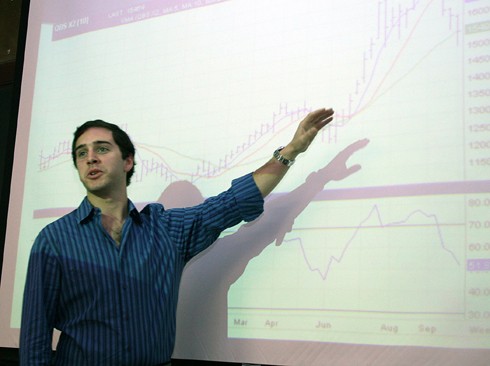Should You Invest In Agricultural Commodities And Stocks
Post on: 13 Июль, 2015 No Comment

The global financial markets have experienced significant growth and expansion in recent times, both in terms of total trading volume and the choice of financial instruments available to investors. This evolution cannot be ignored, as it enhances the liquidity of the market while also increasing the subsequent range of risk management products available.
Despite this influx of new options, however, some long-standing investment opportunities remain enduringly popular among traders. Take agriculture, for example, which is offering an increasingly attractive proposition to investors against the back drop of global warming and significant climate change. In particular, there has been a surge among American farm exports during the last three years, with the outlook forecasted to be even brighter for fiscal year 2013.
Guide To Oil And Gas Plays. We’ve got your comprehensive guide to oil and gas shales in North America.
The Facts About American Agriculture and Its Recent Expansion
According to the U.S. Department of Agriculture, the trend for increasing agricultural trade in America is set to continue for the fourth consecutive year during 2013. Since 2009, agricultural exports from the United States have risen by more than 50% in value, from $96.3 billion to a projected $145 billion in the coming financial year. In addition to supporting an estimated 1 million jobs within the American economy, this robust growth has also created ample opportunity for investors to profit in the financial marketplace.
A sudden and unexpected boom in consumer confidence has also enhanced the prospects for U.S. agriculture, as this reflects a wider economic growth and a growing demand for food and produce. The Conference Board’s Consumer Confidence Index (CCI) rose from 73.1 to 73.7% between October and November this year, while an additional survey suggested that U.S. companies increased their orders of machinery and equipment in order to cope with the sudden economic expansion. These are undeniably positive portents for those seeking to invest in agricultural commodities and stocks, as the market continues to showcase pronounced and consistent growth.
This rising demand is not only prominent in the domestic market, however, as there is also a significant boom throughout emerging economies and markets. Take China and India, for example, as these nations have experienced significant growth over the last year and subsequently established themselves as leading players within the worlds of finance, commerce and international trade. This has driven a rising demand for a higher quantity of agricultural products, while countries throughout Asia are now also procuring and consuming more expensive food.
The Downside of Agricultural Investment
While the rise in global demand and improved consumer confidence certainly suggests a bright future for the agricultural market, however, there are a number of potential obstacles to those who are looking to become investors. A successful investment in agricultural commodities and assets is far easier in theory than it is in practice, with market volatility providing one of the single most significant issues. Agricultural stocks are renowned as being extremely unstable, especially as the stocks are traded in a global marketplace while carrying the burden of commodity ownership and its affiliated costs.
An alternative trading method involves investment in exchange traded commodities (ETCs), which are usually based on futures contracts and agreements. This can be a double-edged sword for agricultural investors, as although these contracts are essentially derivative products that allow traders to profit even in a market of depreciating value, the need to consistently close and open positions can also cause diminished performance and ultimately financial losses. So, while this method can certainly deliver exaggerated financial rewards for experienced investors, it can be one to avoid for those who are new to the market.
Perhaps the single biggest issue facing those with a desire to invest in agricultural commodities is that of their own morality; however, especially when you consider the questionable methods of farming and employment utilized across the globe. In addition to this, critics of agricultural trading and the establishment of ETCs also argue that investor speculation only serves to send food prices soaring, while those in the world’s poorest regions suffer from an ever decreasing supply of produce. Conversely, traders and fund management firms state that this type of investment is pivotal in developing improved production methods and ultimately reducing the price of food, which means that the decision of whether or not to commit hard earned capital is one for each individual conscience.
The Bottom Line
While few can dispute the progressive nature of the agricultural market and the rising demand for food, its standing as an investment opportunity is far more debatable. Despite the ample opportunities created through both individual stocks and futures contracts, the volatility of the market and its prices dictate that even experienced investors must tread carefully. Given that the growing awareness of unethical investment also provides a dilemma to socially responsible traders, agricultural commodities and stocks may be something to avoid unless you have significant market knowledge and understand the process of agriculture investing .














